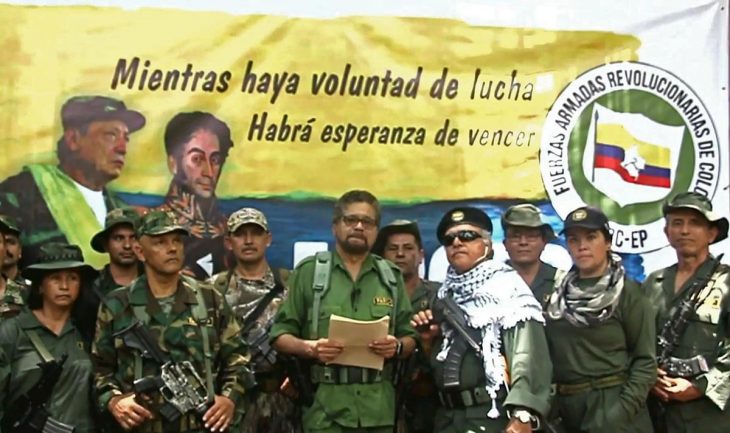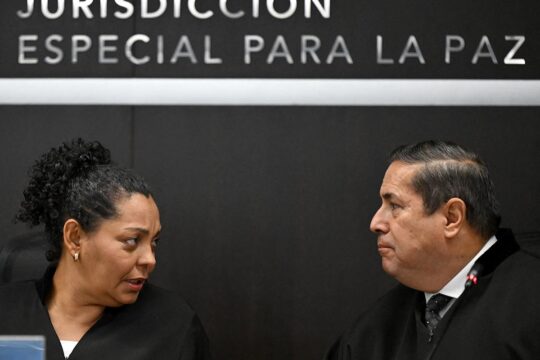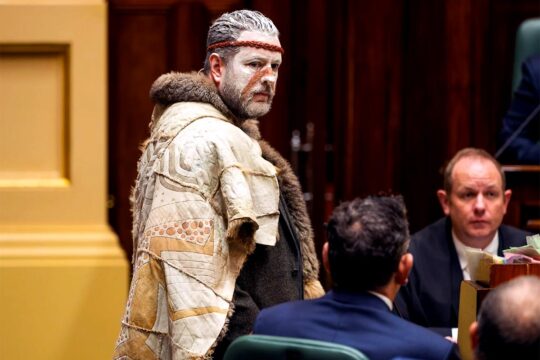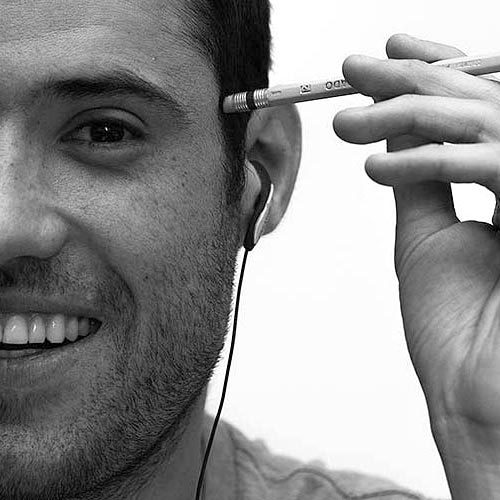Colombia now faces its most pressing political and security crisis since the failed October 2016 plebiscite on the peace deal and the ensuing renegotiation with its opponents, which resulted in a second and definitive accord that paved the way for 13,302 rebels to abandon their weapons two years ago. And the person who must now defend the success of FARC’s disarming and deal with this crisis is President Iván Duque, who as a lawmaker opposed the deal struck by his predecessor Juan Manuel Santos, and has only shown a lukewarm interest in implementing it.
A new guerrilla?
“We were close to ending the longest-running conflict in the Western hemisphere through dialogue, but we failed because the establishment wasn’t willing to respect the principles guiding negotiations that agreements will be kept and are entered in good faith. Once they achieved what they wanted, which was our handover of arms, they deliberately tore the peace accord to pieces,” Iván Márquez said on August 29, from an unknown location near the Venezuelan border.
Donning a camouflage uniform and once again stressing his old nom de guerre, Márquez announced “a new stage of fighting” with the rebirth of FARC as a guerrilla group under his command. Surrounded by twenty gun-toting persons, he justified correcting what he described as “the naïve disarming of the guerrilla” and pinned the blame on the Colombian government for its lacklustre implementation of the accord’s programs on rural development, coca crop substitution or political participation.
Former peace negotiators
Márquez isn’t a nobody. He was one FARC’s historic top commanders and their lead negotiator during the four-yearlong peace talks in Cuba. After the former Marxist guerrilla became a legal political party, he topped their list of candidates for the national Congress, which stumbled badly in the ballot box but still received ten seats as part of the peace accord’s provisions. In the end, he decided against taking up his seat in the Senate after his nephew was arrested on drug trafficking charges, before being extradited to the US and eventually entering a plea agreement with authorities there.
Standing next to Márquez was Jesús Santrich, another former negotiator embroiled in legal problems. After being caught apparently planning a drug operation after the peace deal was signed, Santrich was arrested and sought in extradition by the US.
After several months of political bickering between Duque’s government, the transitional justice system, the US Embassy and the Attorney General, they were unable to reach an agreement on how to probe the exact date in which Santrich had been negotiating the drug shipment. That date was crucial, as it determined whether the transitional justice or the ordinary one should try him, and if an extradition was possible. Following this fracas, Santrich ended up fleeing, eroding the credibility of all the institutions involved. Márquez has always claimed Santrich was framed and politically persecuted.
Alongside Márquez and Santrich were other former commanders from FARC’s military wing, several of which formed part of the guerrilla’s Oriental Bloc that operated in the mountains and jungles of southern Colombia and had the largest military capacity within the organization. They include Henry Castellanos (better known as ‘Romaña’), who infamously devised the guerrilla’s strategy of installing checkpoints on highways and kidnapping persons they deemed profitable, and Hernán Darío Velásquez (aka ‘El Paisa’), the alleged mastermind behind the 2002 car bomb in Bogota’s El Nogal Club that left 37 dead and 198 wounded.
92% of FARC disarmed
Márquez’s announcement does not mean however that others will heed his call. Only 987 of the 13,302 former combatants accredited by the government are currently unaccounted for, according to the National Reincorporation Agency tasked with accompanying them in their transit towards civilian life. This means that 92% of FARC are steadfast in their commitment to a life away from arms.
Aware of the security risk created by a revived faction of FARC, President Duque sought to dispel former rebels’ fears that same day. “We maintain our commitment towards those who are genuinely advancing in their process of reincorporation (…) Our message is clear: those who have chosen a legal path under the principles of truth, justice, reparation and non-recurrence can continue to count with the State’s support,” he said, striking an institutional tone that reaffirmed his commitment to reintegration programs and the transitional justice system. Duque has so far dealt with the crisis as a national security priority, labelling the rebels as narco-terrorists, ordering arrest warrants issued, offering US $1 million rewards for any of them and creating a military task force to go after them.
General condemnation
Even though the peace deal has been the subject of much political bickering, Márquez’s announcement was met with a widespread rebuke.
“What he did is the most serious breach in a peace process: he broke the basic rule of non-recurrence and committed the mortal sin of rearming. In practice, it means leaving the field where we’re all playing,” said Santos’s former peace commissioner and lead negotiator Sergio Jaramillo. “At the heart of the peace deal is a transaction: you abandon your weapons and we facilitate your transition into politics. The government kept its word, he didn’t.”
The Special Jurisdiction for Peace – or JEP, as it is locally known – also took action quickly, reinstating arrest orders for the rebels and initiating the legal procedures to throw them out of the entire transitional justice system. “These persons announced they’re rearming, a criminal activity that implies the loss of all benefits, including their presence in the transitional justice system. They must be excluded from it,” said JEP chair Patricia Linares. This would ensure they cannot receive any special criminal treatment and that any crimes committed – both before and after the peace deal – shall not be investigated by the JEP but by the ordinary justice system.
Farc versus Farc
The decision by Márquez also means the Colombian transition will become quite confusing, with a political party and a rebel group both claiming property of the FARC acronym.
Rodrigo Londoño, who was FARC’s military leader and their presidential candidate in last year’s election, quickly distanced himself from his former colleagues. “The Colombian state’s proven failure to fulfil its commitments cannot be responded with other unfulfilments,” said Londoño, whose handshake with President Santos became the icon of the peace deal. Another former FARC member penned a scathing op-ed accusing Márquez of being selfish and disappointing his former comrades in arms. This week, FARC’s political party announced the new rebels will be expelled.
For the moment, the party will have to live with the fact that it chose not to separate themselves from their vastly unpopular name, resorting to a slightly different variation – the Common Alternative Revolutionary Force – as their new name in democracy. In fact, Londoño and others who strongly support the peace deal originally sought a change in name but were defeated internally. Indeed, it was the now fugitive Márquez and Santrich who insisted most on preserving their old acronym, a move that was seen by many of Colombia’s 8,8 million victims of conflict as a slap in the face and proof of their lack of contrition.
This new scenario becomes even more complex with local elections of mayors and governors slated for October. The FARC party will field candidates in 60 different towns and has even found unlikely allies like Luis Eladio Pérez, a former senator they kidnapped for seven years and whose bid for governor of Nariño they now support. If a FARC outside the law acts just as they begin to campaign, risk levels could increase for them.
Peace process at stake
After Márquez’s announcement several questions remain unanswered and could have a negative impact on the Colombian transition.
The exact number and military capacity of this new faction of FARC isn’t clear yet, or what sources of financing it will pursue. Nor is whether it will be able to forge alliances with other criminal groups like the National Liberation Army (ELN) – as Márquez announced – or with the dissident groups that broke away from FARC before the peace deal was signed and were noticeably absent from the group picture last week.
What role Venezuela will play is one of the biggest question marks. Former president Hugo Chávez was instrumental in persuading FARC to sit down and negotiate, but relations with his successor Nicolás Maduro have soured since. In fact, in his speech Duque accused Maduro of harbouring the rebels and requested help from his rival, interim president Juan Guaidó, in prosecuting them.
Given that for years many guerrilla commanders – including Márquez and Santrich – considered Venezuela as a safe haven, the emergence of a new FARC is likely to become a complicated factor in the neighbouring country’s own political crisis and transition.
It is also not clear what support President Duque will get help from his own party, the Democratic Center in solving this crisis. Just as he seeks to allay demobilized combatants’ fears, his mentor, former president Álvaro Uribe, is stating in campaign rallies that the peace deal should be modified and excluded from the Constitution, two ideas that could further increase divisiveness among Colombians. His party is also actively supporting a referendum in which Colombians would be able to vote on whether to abolish the JEP. Uribe even publicly doubted whether FARC is genuinely committed to peace, suggesting that the former guerrillas had always planned on keeping armed and political wings simultaneously.
In the end, the perception of whether Colombia’s peace process is successful is at stake. In the past, no matter how divisive the country’s politics have been over the accord, the Colombian model that managed to disarm 13,000 rebels was considered praiseworthy and effective. That too could change if the country doesn’t find a way out of this crisis.







